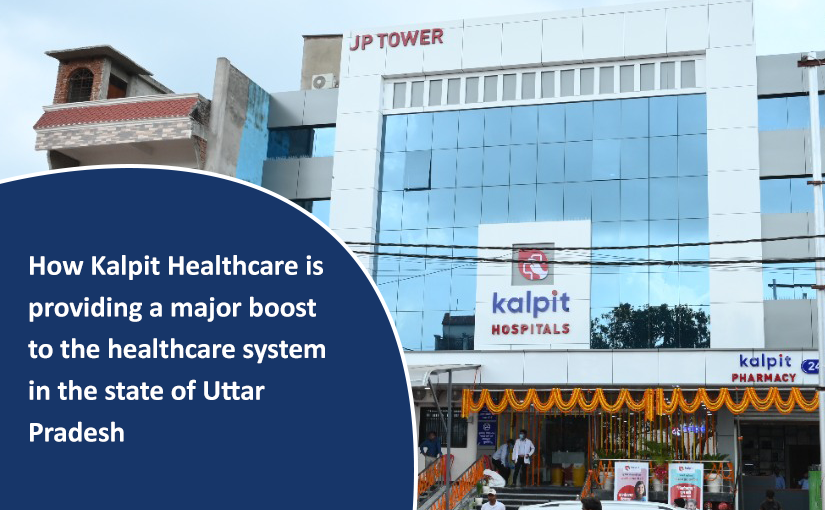Our kidneys are essential for eliminating waste and extra fluid from our blood, preserving electrolyte balance, and controlling blood pressure. However, kidney health is frequently disregarded until symptoms appear, at which point the illness may have advanced considerably. Early kidney disease detection, management, and therapy can be greatly aided by speaking with a nephrologist or a specialist in renal care at Kalpit Hospital, the multispeciality hospital in Khalilabad, Uttar Pradesh. Here, we\’ll discuss when to consult a nephrologist for the best possible care of the kidneys.
Understanding the Role of Nephrologists
Medical professionals diagnosing, treating and managing kidney disorders are known as nephrologists. They have received training in assessing renal function, identifying kidney disorders, and creating individualized treatment schedules for each patient. Nephrologists collaborate closely with physicians, urologists, and dietitians to treat kidney patients in the best possible way.
When to meet a Nephrologist
Regular High Blood Pressure
Chronic kidney disease (CKD) can result from persistently high blood pressure, which can harm the kidneys over time. Seeing a nephrologist can assist in evaluating kidney function and identify the best course of action for treating high blood pressure that doesn\’t go away despite medication and lifestyle changes.
Abnormal Kidney Function Tests
Serum creatinine and estimated glomerular filtration rate (eGFR), two blood tests that measure kidney function, might reveal underlying kidney issues. If your kidney function tests reveal anomalies, such as decreased eGFR or elevated creatinine levels, the nephrologist assesses the data, pinpoints possible reasons, and suggests additional diagnostic procedures or therapies.
Hematuria or proteinuria
Hematuria is the presence of blood, while proteinuria is the presence of protein in the urine. These conditions indicate a renal injury or malfunction. It\’s critical to see a nephrologist for assessment and treatment if you have ongoing proteinuria or hematuria, as these symptoms could point to underlying kidney disease or urinary tract issues.
Recurrent Kidney Stones
Hard mineral deposits called kidney stones can develop in the kidneys, leading to discomfort, renal damage, and UTIs. A nephrologist can assist in diagnosing the underlying causes of kidney stones and developing preventive measures to lower the risk of future stone formation if you have a history of recurrent kidney stones or develop kidney stone-related problems, such as obstructive uropathy or chronic kidney damage.
Diabetes mellitus or its sequelae
Diabetic nephropathy, a kidney condition, is primarily caused by diabetes. It is essential to see a nephrologist for routine kidney health monitoring and management if you have diabetes, particularly if you have uncontrolled blood sugar levels or develop problems such as diabetic kidney disease.
Autoimmune Diseases
Some autoimmune disorders can induce inflammation, tissue damage, and reduced kidney function. Examples of these diseases include vasculitis and lupus nephritis. You should consult a nephrologist if you have kidney involvement in an autoimmune disease or if you have symptoms like oedema, exhaustion, or irregular urine patterns. It will ensure a proper diagnosis and course of therapy.
Kidney disease in the family history
You may be more susceptible to kidney issues if you have a family history of kidney illness or genetic disorders such as polycystic kidney disease (PKD). Early detection of kidney disorders and the maintenance of long-term renal health is achieved by coordinating proactive screening, risk assessment, and preventative actions with a nephrologist.
Conclusion
Sustaining renal health is essential for general health and lifespan. It\’s critical to understand when to see a nephrologist to diagnose, treat, and manage kidney-related diseases on time.
Make an appointment with nephrologists at Kalpit Hospital in Khalilabad, Uttar Pradesh, if you have questions about your kidney health, signs of renal disease, or risk factors that you would like to discuss. They can offer you specialized treatment, insightful information, and proactive ways to maintain kidney function and improve quality of life. Prioritize your kidney health and seek expert advice—don\’t wait until symptoms worsen.



